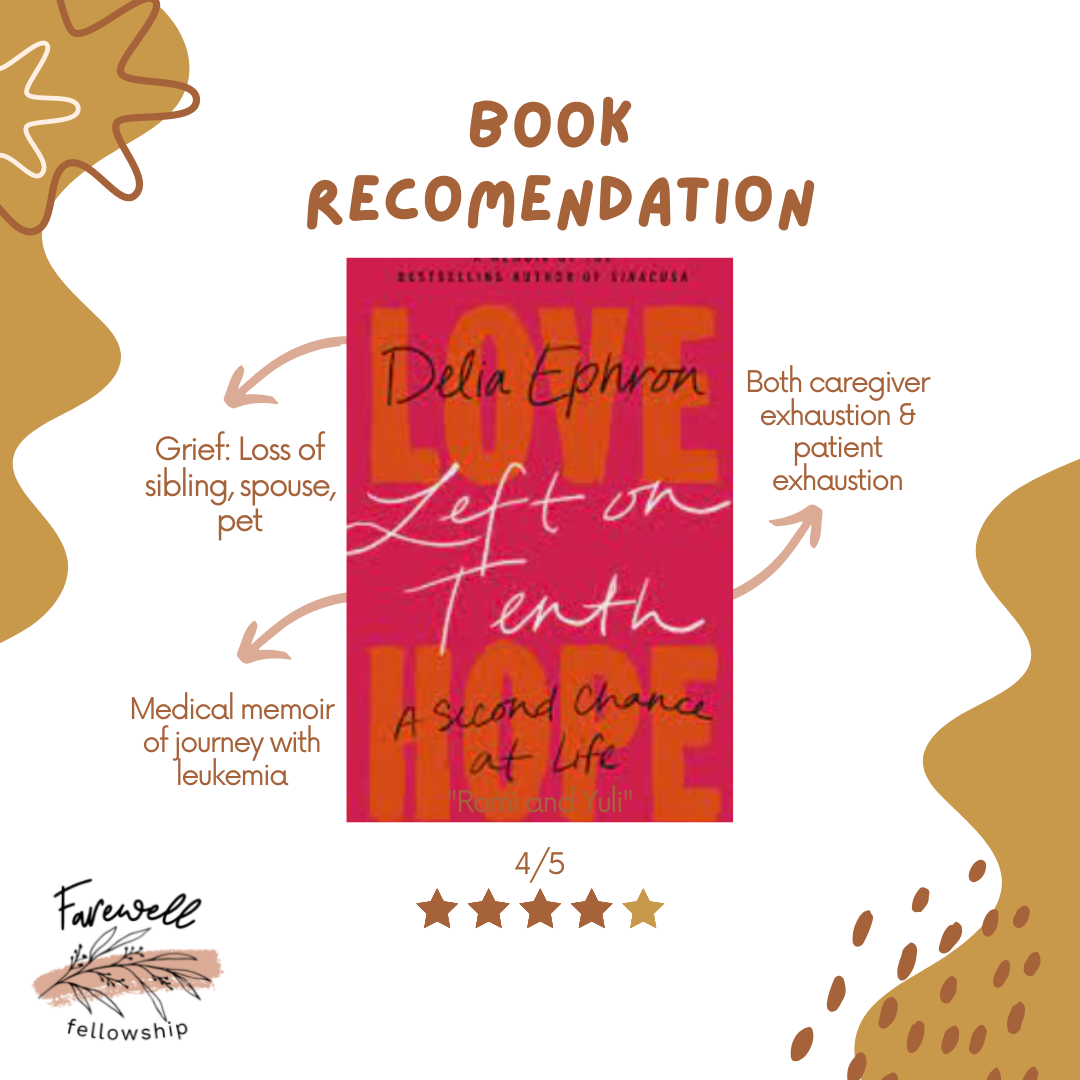Left on Tenth: a Second Chance at Life by Delia Ephron
It is unusual for a memoir to include all of the experiences that a death midwife would want to fully understand: cancer diagnosis, cancer treatment, depression of a patient after long-term treatment, sibling loss, spouse loss, pet loss, hospice, caregiver exhaustion and (even!) a sunset love story. But this lengthy expanse of human experience is exactly what Delia Ephron covers in her heartfelt memoir, Left on Tenth: a Second Chance at Life.
Delia Ephron, sister of the late Nora Ephron, has had a long-standing career as a writer and is no amateur at sharing the intimate details of her life and relationships. Her memoir, Left on Tenth, begins with a heartbreaking scene all too familiar for those who support their loved ones on hospice: a fall out of bed in the days before her husband’s death, unsympathetic paramedics and rushed hospice support. From the first pages of her book, I was drawn in by her blunt recollections of trying times and her ability to retell with a wry perspective. Where I expected her to continue on into a memoir of grief, I was surprised as she took a sharp left into the land of love and then her own illness and recovery from the brink of death, all while maintaining that blunt and wry voice.
After burying her husband and unexpectedly falling in love again, Ephron is suddenly diagnosed with the same disease that killed her sister, Acute Myeloid Leukemia (AML). The bulk of her memoir is her journey through treatment, one time successful with chemotherapy and into remission but then recurring and necessitating a bone marrow transplant. Facing her own illness in the face of her sister’s death cast a long shadow for Ephron and this was one of the most touching parts of this book for me. But also the sheer breadth of the experience that Ephron has, from easily moving into remission the first time to complete surrender to death the second time as the exhaustion of the medical complex’s incredible industry took its toll. Ephron bravely tugs the reader along with her, every step of the way, reading emails between her husband and caregiver and her wide community of friends that were written during parts of the journey where she was largely absent to illness and depression.
I listened to Delia Ephron read this work herself and loved the cracks and squeaks of her voice as she shared her story. Though her journey was long and convoluted, her story is ultimately a happy one that was captivating, educational, critical of the systems that are underserving the ill and dying and freshly delivered.

